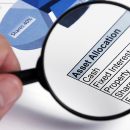How to Come Up with a Foolproof Budgeting Plan for Your Retirement

On average, life expectancy rates have gone up over the last few years. People are staying healthy and active well into their sunset years. However, the drawback of this is a longer retirement span, which means you will need a much higher retirement fund than anticipated to have a financially secure retirement. But several studies indicate that many Americans have not saved enough to retire in their 60s and are not confident about their retirement. The Consumer Financial Protection Bureau has estimated that nearly 50% of retirees will need to cut back on their retirement spending, either voluntarily or forcefully, because of a lack of resources. Further, one in five married couples and 45% of single retirees rely on Social Security benefits to cover 90% of their income and living expenses during retirement. Whereas, as per facts, Social Security can replace only 40% of your average salary after you retire. A financial advisor can help you to create a customized retirement plan to maximize your savings and grow your investments to achieve your retirement goals and strengthen your financial security.
The first step is to create a holistic retirement plan with an income strategy that offers a steady retirement paycheck, an investing strategy that gives you feasible returns over time, and, most importantly, a realistic budget to ensure you do not outlive your corpus. Even though making a budget may not be the first thing you would want to do in retirement, it is one of the most critical things to do, so that you begin your retirement journey on the right note.
Here are some tips that can help you come up with a foolproof budgeting plan for your retirement:
-
- Organize your income by creating a budget: The first step to create an impenetrable retirement budget is to plan and understand your expectations. Think about the life you want to live during retirement. This will help you determine your income needs, account for your expenses, allocate emergency funds, etc., and determine if your spending will likely go up or down during your non-working years. Once you have a clear view of how you want to spend your retirement, focus on identifying your income sources. List down your retirement income sources, such as pensions, Social Security benefits, and retirement savings across all your accounts. You might have some money saved in your 401(k) plan, a few funds in your IRA (Individual Retirement Account), etc. If you switched jobs, take into account the money saved in your previous 401(k) account. When estimating your income, check for investments made in the form of medical insurance, Medicare, long-term care insurance, Health Savings Account (HSA). These investments ensure that your healthcare spending constitutes a negligible or a small part of your retirement budget. Also, estimate the income from annuities or other similar investments. That said, while you are calculating your income, keep in mind that the amount you are expecting to receive might not be entirely yours to keep. You will have to pay the applicable federal and state taxes on your income during retirement. So, when accounting for income, subtract the taxes you will be liable to pay during retirement. For instance, if your sole income source during retirement is Social Security, you will not be liable to pay any taxes during retirement. However, if you have other revenue sources, such as an IRA, pension, etc., alongside your Social Security, you will be paying taxes as per your level of income. A retiree with a substantial pension can expect to pay taxes on 85% of the Social Security payments received. However, the applicable tax rate varies between 15% and 45%. But, most states in the U.S., including Texas and Florida, do not charge taxes on Social Security. Further, your retirement savings account withdrawals, like an IRA, 401(k), or 403(b) plans, will also attract a tax charge. You will pay taxes on the gains from these accounts as per ordinary income tax rates at the time of withdrawal of money. The total tax varies according to the total earnings, applicable deductions, and tax bracket. That said, you will not pay any taxes on your contributions, earnings, or withdrawals from your Roth IRA or Roth 401(k) account. However, for this benefit, the withdrawal should be as per the Internal Revenue Services’ specifications. Moreover, you must hold these accounts for at least five years before claiming any tax provisions.
-
- Estimate your retirement expenses: You know how much income you will have each month during retirement. The next step is to figure out how much you will need to spend each month. For this purpose, you can take a look at your past expenses for 6 months and precisely understand your monthly expenditure. The objective is to create an exhaustive list of all your expenses and then categorize them into different buckets – essential/non-discretionary or non-essential/discretionary expenses. Essentials are items that are required to maintain a basic retirement lifestyle. These include rent, mortgage payments, loan EMIs, household bills, food, transportation, and healthcare. Some of these items are fixed and easy to list, whereas other items, such as electricity or water bills, can be calculated as per an average of the last six months. Alternatively, non-essential or discretionary spending accounts for expenses that are not mandatory to get by in life. These typically include online subscriptions, magazine subscriptions, coffee dates, dining out, entertainment, gifts, traveling for leisure, etc. Once you list the two outlays, add them up. Your essential expenses amount is the bare minimum money that you require each month. However, it is possible to cut down on your non-essential expenses and save more money. The objective is not to be a miser but to spend frugally. Try to spend on non-essential items only up to a specific budgeted limit.
SPONSORED WISERADVISOR
-
- Plan for healthcare expenses in retirement: In most cases, your expenses before retirement and during retirement will be the same. However, there is likely to be a major change in the healthcare category. As you age, you would spend more on medical costs than elsewhere. As per a report, healthcare expenses take the largest bite of your retirement corpus during the latter part of your life. Further, as per Fidelity, an average 65-year-old couple retiring in 2021 can expect to spend $300,000 to cover their healthcare expenses in retirement. This sum is exclusive of long-term care, which is expected to be needed by a large chunk of people in the future. Even though these figures are alarming, you can cover these costs if you plan well. For this purpose, make the right investments when you are young and choose optimal strategies when nearing your retirement years. You can rely on Medicare benefits but only after you turn 65. So, in case you have plans to take early retirement, you might need to pay for some or all of your healthcare services. Ensure to include them in your retirement budget. Also, note that even if you are eligible for Medicare benefits, you might still need to pay some healthcare costs out of pocket, provided you do not enroll for additional benefits like the Medicare Advantage plan. If you buy a Medicare Advantage plan, account for that in your retirement non-discretionary expenses too. That said, if you have additional healthcare insurance plans or investments like a long-term care insurance policy or an HSA (Health Savings Account), list their contribution amount in your expenses too. As a wise retirement planner, you should plan these healthcare expenses before retirement, so that you do not shell out any money for this from your retirement budget later.
-
- Create a smart budget for retirement: Once you have estimated your expenses, adjusted for any lifestyle changes or novel outlays, and factored all your income streams, you can easily create a foolproof budget for your retirement. The process of creating a retirement budget will be largely similar to your previous budgets. However, you would need to consider a few retirement-centric aspects, such as your source of retirement earning will be your personal savings and not an employer. That said, there are different ways to create a budget. You could choose to form a zero-based budget where each dollar you spend has a defined purpose. For this, take a look at your income and subtract it from your non-discretionary expenses. The leftover sum is the money that you can use to cover your non-essential expenses. However, you should not use the entire sum and instead set realistic savings goals so that you can reserve funds for the future. Alternatively, you can consider creating a budget using the 50-20-30 rule. As per this approach, you can spend 50% of your after-tax retirement income on non-discretionary items, 20% of your income to pay debts or increase savings, and 30% of your retirement income on whatever you like. A major advantage of structuring your budget in this approach is that it helps you live within your means while also contributing towards increasing your corpus as well as helping you live your golden years well. With 30% of your retirement income, you can fulfil all your retirement dreams and goals, such as traveling. If both these budgeting strategies do not work for you, you can opt for an envelope budget. In an envelope budget, you set an upper spending limit for each expense category rather than assigning a defined amount for each item. For instance, you allocate $4,000 each month for household bills and once you reach the collective limit, the category of spending is considered exhausted until the new monthly budget. This means that you only use a predetermined amount as your spending pool and do not go beyond the limit. Envelope budgeting will help you set a broader budget limit and ensure you do not outlive your savings in the long run. Choosing the right budgeting style is important and also depends on a variety of factors. Be careful and see which approach works best for you, given your personal preferences and income mediums. There is no one-size-fits-all approach. Hence, you can also consider making small changes to a budget methodology as per your needs. For instance, if you have a considerably large portion of debt, such as a home loan, or a child’s education loan, etc., you can change the percentage allocation of the debt/savings portion in the 50-20-30 budgeting strategy. Here, instead of spending 30% of your retirement savings on discretionary expenses, you could spend 20% or less and direct the influx of funds towards paying off debt.
- Try the retirement budget: After you have created your retirement budget, a wise thing to do is to try the plan for a few weeks before you finally implement it during your retirement. Set the retirement budget as your new budget and continue to work. Direct any excess income that exceeds your budget towards retirement savings, such as a 401(k) account, to boost your corpus. However, if you spend more than anticipated, revisit the budget and make the necessary adjustments. You might have overlooked a few expenses, such as an unpaid loan or spent excessively on dining out, etc. Once you try the retirement budget for a few weeks, you will get an indication of how you will live during retirement. As per your experience, you can estimate if you need to boost your corpus to accommodate higher spending or if your current retirement savings will be sufficient to take care of your needs and enable you to live a comfortable life. If you are financially comfortable with the budget you created, you can safely opt for retirement. Alternatively, if you have already retired, you could try the budget approach for a few weeks to see if you need to make any changes or if a particular style is working for you or not.
To sum it up
Once you successfully create and test a retirement budget, do not get complacent about it. Revise your budget over time, update it regularly, and reassess your spending during the different phases of retirement – pre-retirement, the early years of retirement, mid-retirement, and the later years of retirement. Adapt your budget with each phase and manage your money more responsibly to ensure you live a secure retired life without any financial stress. Consulting a professional financial advisor, can help you ensure that your retirement budget adequately meets your requirements through the golden years of your life.











